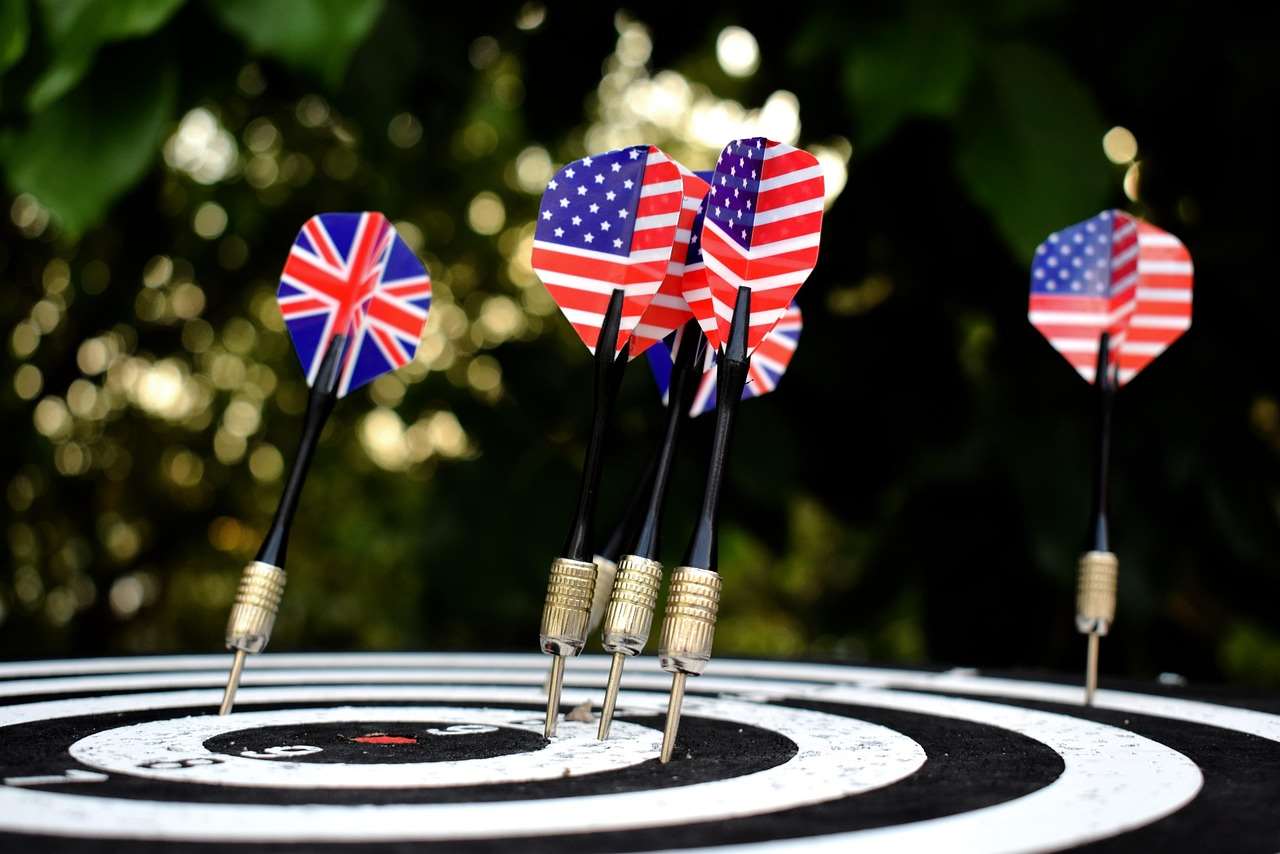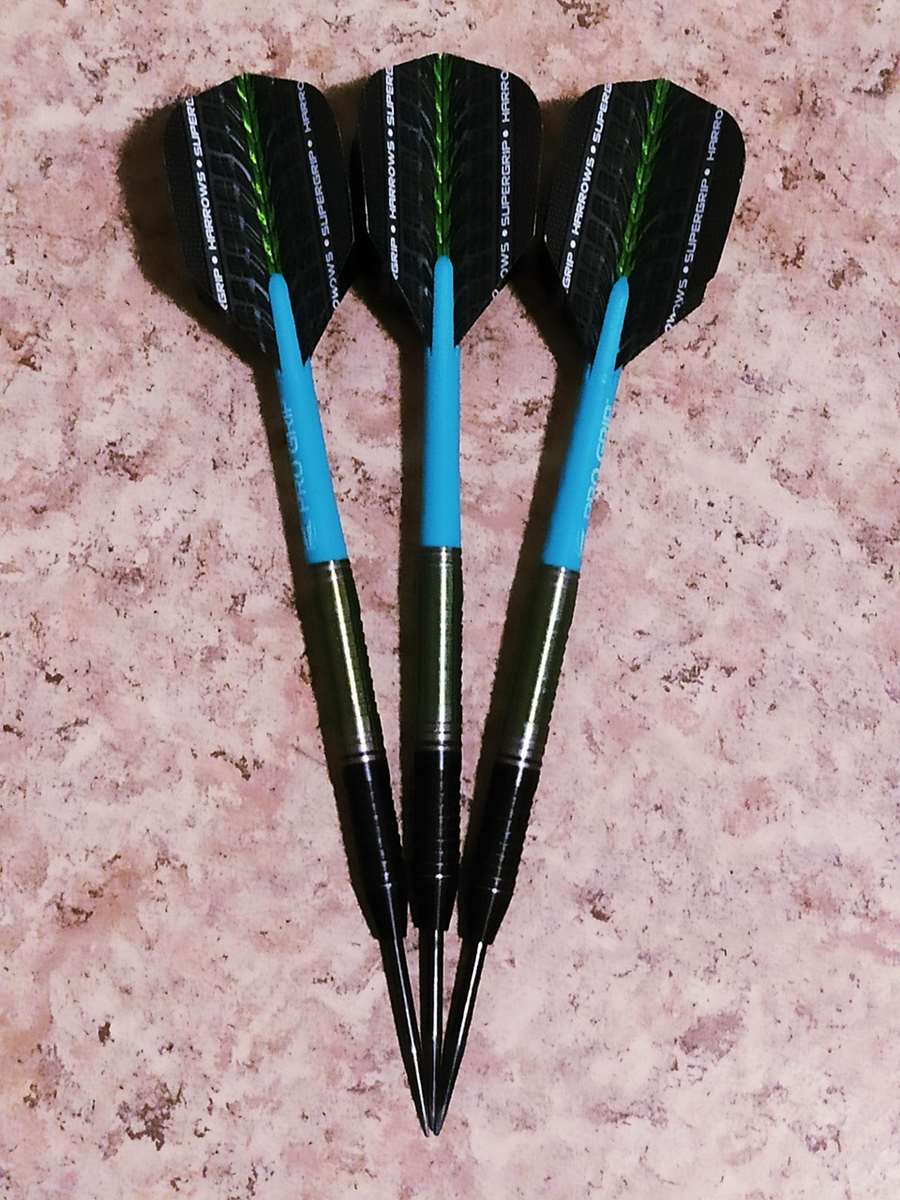Mastering etiquette when retrieving darts ensures a smooth, enjoyable game for everyone involved. This guide will equip you with best practices for dart retrieval, minimizing distractions, and showing respect for your fellow players and the game itself; you’ll also learn about safety considerations and common mistakes to avoid.
⚠️ Still Using Pen & Paper (or a Chalkboard)?! ⚠️
Step into the future! The Dart Counter App handles all the scoring, suggests checkouts, and tracks your stats automatically. It's easier than you think!
Try the Smart Dart Counter App FREE!Ready for an upgrade? Click above!
The Importance of Etiquette When Retrieving Darts
Following proper etiquette when retrieving darts isn’t just about being polite; it’s crucial for maintaining the flow of the game, preventing accidents, and fostering a positive atmosphere. Consider the impact your actions have on others, and remember that a little consideration goes a long way.

For example, rushing in front of another player while they are concentrating to retrieve your darts could throw them off their game. Similarly, excessive celebration or negativity after each throw can be disruptive and annoying.
Why Good Etiquette Matters
- Respect for Opponents: Demonstrates consideration for their concentration and enjoyment.
- Smooth Gameplay: Minimizes delays and distractions, keeping the game flowing.
- Safety: Reduces the risk of accidental injuries from flying darts or collisions.
- Positive Atmosphere: Creates a more enjoyable and sportsmanlike environment for everyone.
The Retrieval Process: Step-by-Step Etiquette
The actual retrieval of your darts is where many etiquette when retrieving darts considerations come into play. Let’s break down the process:
Waiting for Your Turn
This is perhaps the most fundamental aspect. Always wait until all players have completed their throws before approaching the dartboard. Rushing ahead is disrespectful and can be dangerous. Consider the game flow and player concentration.
Knowing Darts Culture And Community Guide can improve your interactions with other players.
Approaching the Dartboard
When it’s your turn, approach the dartboard calmly and deliberately. Avoid sudden movements or loud noises that could distract other players. If possible, try to approach from the side to avoid blocking anyone’s view.

Retrieving Your Darts
Pull your darts straight out of the board with a gentle twisting motion. This minimizes damage to the board and makes it easier to remove the darts. Avoid yanking or wiggling them excessively.
After retrieving your darts, acknowledge your score and thank your opponent(s) for the game before moving away from the board. Simple courtesy can make a big difference.
Dealing with Bounce-Outs
Darts sometimes bounce out of the board. Mark the location where the dart hit (or where it would have hit) and retrieve it after everyone has finished their turn. Don’t disrupt the game by immediately retrieving a bounce-out. Mark clearly and accurately.
Safety First: Avoiding Accidents
Safety is paramount when playing darts. By following these simple guidelines, you can minimize the risk of accidents and ensure a safe and enjoyable experience for everyone. This is another part of showing good etiquette when retrieving darts.
Awareness of Surroundings
Be aware of your surroundings at all times. Make sure there’s ample space around the dartboard and that no one is standing too close. Establish a clear safety zone to prevent accidental injuries.
No Retrieving During Throws
Never, ever retrieve your darts while another player is throwing. This is extremely dangerous and can result in serious injury. Wait until they have finished their turn completely. This is critical for etiquette when retrieving darts.

If you are interested in How To Start A Darts League this rule becomes even more crucial!
Proper Dart Handling
Always handle darts with care. When not in use, store them securely in a dart case or holder. Avoid throwing them carelessly or leaving them lying around where someone could trip over them.
Eye Protection Considerations
While not always necessary, consider wearing eye protection, especially if playing in a crowded or unfamiliar environment. Dart-related eye injuries are rare but can be serious.
Common Etiquette Mistakes to Avoid
Even experienced dart players sometimes make etiquette when retrieving darts mistakes. Being aware of these common pitfalls can help you avoid them:
- Walking in Front of Throwers: This is a major distraction and safety hazard.
- Talking During Throws: Maintain silence while others are throwing.
- Excessive Celebration: A little celebration is fine, but avoid being overly demonstrative.
- Poor Loser Behavior: Accept defeat gracefully and avoid making excuses.
- Damaging the Dartboard: Avoid excessive force when retrieving darts.
- Distracting Noises: Refrain from making unnecessary noises that could disrupt other players.

Being respectful to your opponents demonstrates good etiquette when retrieving darts and makes the game enjoyable for everyone. Good sportsmanship matters, on or off the oche.
Adapting Etiquette to Different Environments
The specific etiquette when retrieving darts may vary depending on the environment. What’s acceptable in a casual game at home may not be appropriate in a more formal tournament setting.
Home Games vs. Pub Games
Home games tend to be more relaxed, but basic etiquette still applies. Pub games often involve larger crowds and may require greater awareness of your surroundings.
League Play and Tournaments
League play and tournaments typically have stricter rules and a higher level of formality. Familiarize yourself with the specific rules and regulations before participating.
If you want to learn more about Building Local Darts League Club Guide, this topic should be studied in detail.
Considerations for Different Cultures
Dart-playing cultures can vary around the world. Be mindful of local customs and traditions to avoid causing offense. Do some research if playing internationally.
Beyond Retrieval: Overall Darts Etiquette
Good darts etiquette when retrieving darts extends beyond just the retrieval process. It encompasses all aspects of the game, from preparation to post-game conduct. Overall sportsmanship is key.
Pre-Game Etiquette
Arrive on time and be prepared to play. Help set up the dartboard and ensure the playing area is clean and safe. Be respectful of other players and their equipment.
During the Game Etiquette
Maintain a positive attitude and avoid making negative comments. Be respectful of your opponents and their skill level. Follow the rules of the game and resolve any disputes fairly.

Post-Game Etiquette
Thank your opponents for the game, regardless of the outcome. Offer constructive feedback if appropriate. Help clean up the playing area and put away the equipment.
This is especially important when Organizing Local Darts League.
Conclusion
Mastering etiquette when retrieving darts, along with general darts etiquette, demonstrates respect, promotes safety, and contributes to a more enjoyable experience for everyone. By following these guidelines, you can ensure that your dart games are not only competitive but also fun and sportsmanlike. Make sure to practice these tips in your next game to be an exemplar of good darts behavior. Now that you’re equipped with the knowledge, why not put it into practice? Find a local darts club or organize a game with friends, and showcase your newfound understanding of darts etiquette!
Hi, I’m Dieter, and I created Dartcounter (Dartcounterapp.com). My motivation wasn’t being a darts expert – quite the opposite! When I first started playing, I loved the game but found keeping accurate scores and tracking stats difficult and distracting.
I figured I couldn’t be the only one struggling with this. So, I decided to build a solution: an easy-to-use application that everyone, no matter their experience level, could use to manage scoring effortlessly.
My goal for Dartcounter was simple: let the app handle the numbers – the scoring, the averages, the stats, even checkout suggestions – so players could focus purely on their throw and enjoying the game. It began as a way to solve my own beginner’s problem, and I’m thrilled it has grown into a helpful tool for the wider darts community.